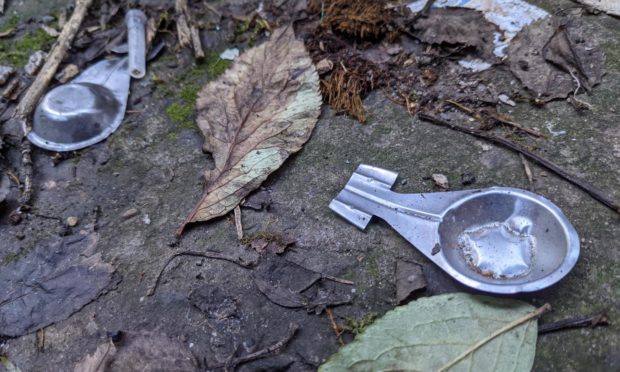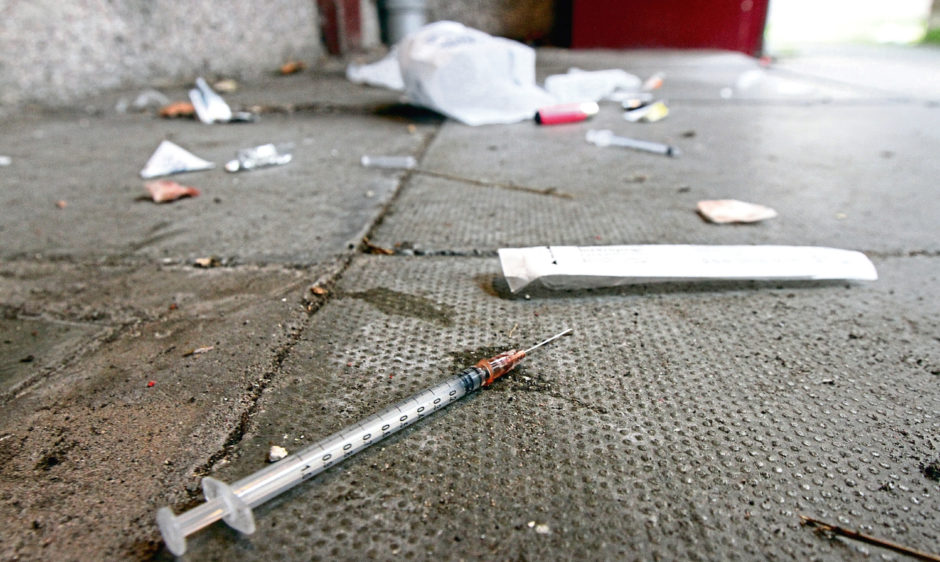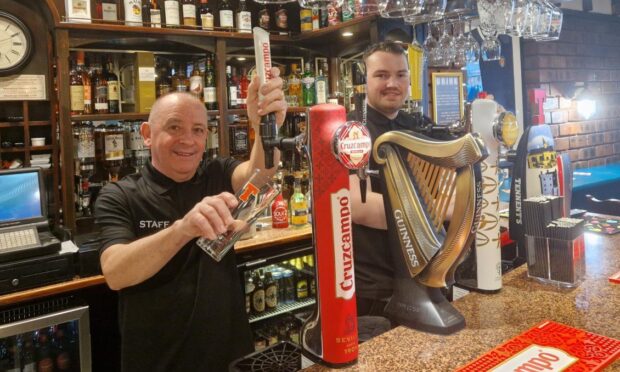The number of drug-related deaths has hit a record high in Dundee as figures rise again across the country.
Deaths in the city rose from 66 in 2018 to 72 in 2019 in what is the sixth consecutive yearly rise.
That equates to 482 deaths per million people, up from 443 in 2018.
Glasgow has the second worst at 440, followed by Inverclyde at 424.
The National Records of Scotland annual statistics show 1,264 people died from drug-related causes in the country in 2019.
The rate for Scotland is higher than those reported for all the EU countries, and is approximately 3½ times that of the UK as a whole.
David Liddell, Scottish Drugs Forum’s CEO, said: “The statistics announced today are a grievous reminder of the human cost of the ongoing public health crisis we face in Scotland.
“For each of these deaths, there is a family and a group of bereaved people coping with their loss, often after years of caring and supporting someone suffering from problem drug use.
“The cost to families and friends cannot be measured and the consequences can be serious, with the potential to have a long-term impact on their health and future lives.”
.
The figures show the toll across Scotland is 6% higher than 2018, and the highest since records began in 1996.
Scottish Labour are calling for an immediate change of political and policy direction to “end stigma and save lives”.
Health spokesperson Monica Lennon said: “Every drug-related death is an avoidable tragedy, and the scale of the crisis in Scotland demands a radical rethink from all political leaders.
“Scotland’s drug death rate is one of the worst in the world. We can’t sweep this public health and human rights emergency under the carpet a moment longer.
“Safe consumption facilities and increased rapid access to residential rehabilitation are vital and could happen today.
“The Scottish government doesn’t need to wait.
“People who misuse drugs and their families need urgent action and telling people whose lives are in turmoil to be patient is insulting and unambitious.
“All political parties should be willing to work together to end the stigma, save lives and to help Scotland’s recovery community thrive.”











